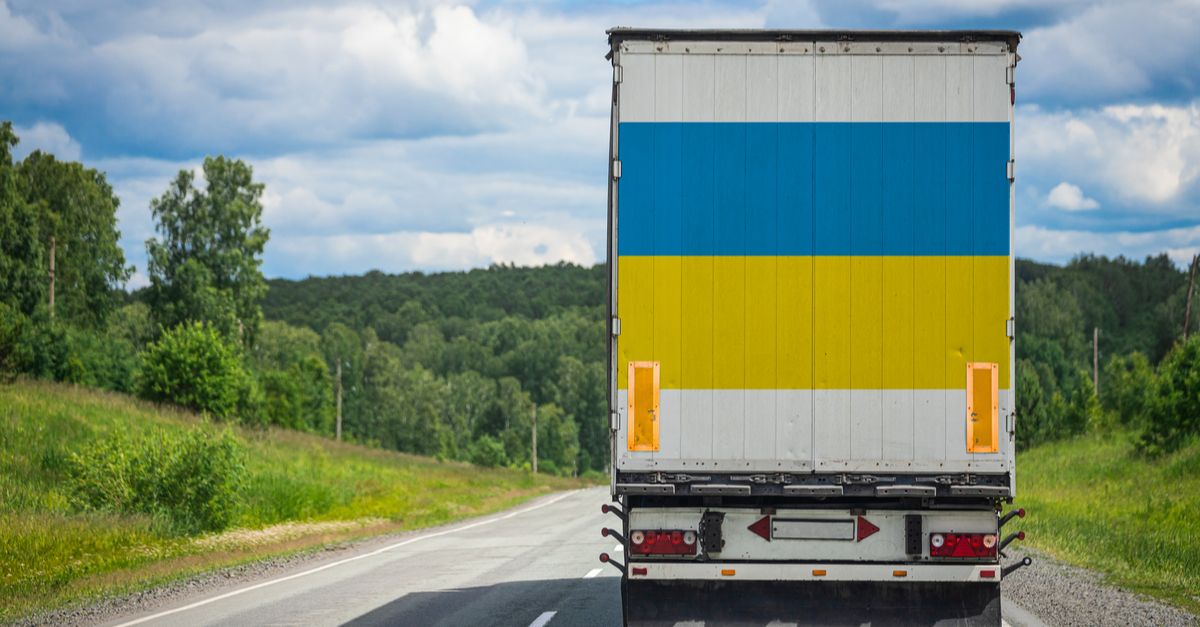Ukraine and the EU extended the “transport visa-free regime”

This step is expected to ensure positive dynamics of exports to the EU, making the country more economically stable. The agreement has been extended and will be valid for at least a year with the possibility of automatic prolongation until the end of 2025.
Today, on June 20, in Brussels, Deputy Minister of Communities, Territories and Infrastructure Development Serhiy Derkach and EU Commissioner for Transport Adina Veljan signed an extension of the Agreement on the Liberalization of Freight Transport between Ukraine and the EU. This was reported by the press service of the Ministry of Reconstruction.
It is a “transport visa-free regime” that will make it possible to carry out bilateral and transit cargo transportation without the need for permits.
“Ukraine demonstrates practical results of integration into the economic and logistics space of the European Union. The extension of the ‘transport visa-free regime’ is one of these steps. It will ensure positive dynamics of exports to the EU countries, which will make us more economically sustainable. In addition, unrestricted freight transportation speeds up the receipt of goods and components by Ukrainian entrepreneurs to develop their own production. We are grateful to our partners for this step of solidarity, which will benefit our country and the countries of a united Europe,” said Prime Minister of Ukraine Denys Shmyhal.
In addition to the extension of the agreement, the updated document provides for a number of obligations for both Ukrainian and European carriers.
In particular, all drivers will have to have documents confirming that they have a transportation license. In addition, all trucks carrying out transportation under the terms of the agreement must be specially marked.
“The key thing is that the Agreement has been extended and will be valid for at least a year with the possibility of automatic prolongation until the end of 2025. Over the past six months, we have been actively negotiating with the European Commission to extend the ‘transport visa-free regime’. And I am grateful to our carriers, with whom we worked together to amend the agreement,” said Deputy Minister of Communities, Territories and Infrastructure Sergiy Derkach.
He noted that today we have a result – an opportunity for our business to plan its work, ensuring stability and predictability in the bilateral and transit transportation market, the same conditions for transportation for both Ukrainians and foreigners.
Derkach also noted that the agreement is necessary not only for Ukraine, but also has a positive impact on the EU market. The latter is confirmed by the figures – for example, if we compare last year with 2021, imports from the EU to Ukraine increased by more than 45%. Exports of domestic goods by road increased by 45%.
Another innovation is the availability of supporting documents for trucks leaving Ukraine empty for goods to the EU.
In addition, a special working group is to be set up to analyze the impact of visa-free travel on the market. It will include representatives of Ukraine and the EU.
The European Commissioner, for her part, noted that the signing of the agreement is an important step towards strengthening cooperation between Ukraine and the EU and accelerating Ukraine’s integration into the EU’s transport environment.
The Ministry of Reconstruction pointed out that before the full-scale invasion, road transportation between Ukraine and the EU countries was carried out on the basis of a fixed number of permits. The latter often expired prematurely. The signing of the agreement on freight liberalization with the EU in June 2022 helped ensure the sustainability of transportation, given the destruction of logistics routes due to the Russian invasion, and eliminated the need to obtain permits.
Read also
Wheat in Southern Brazil Impacted by Dry Weather and Frosts
Oilseed Industry. Leaders and Strategies in the Times of a Great Change
Black Sea & Danube Region: Oilseed and Vegoil Markets Within Ongoing Transfor...
Serbia. The drought will cause extremely high losses for farmers this year
2023/24 Safrinha Corn in Brazil 91% Harvested
Write to us
Our manager will contact you soon



